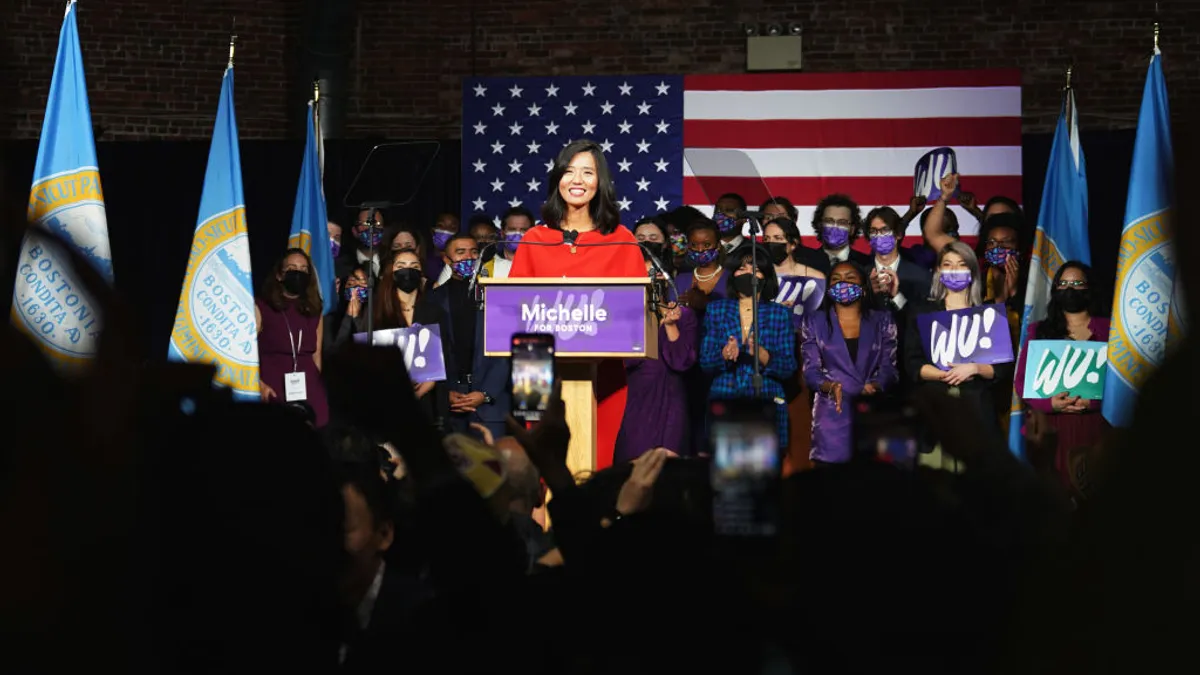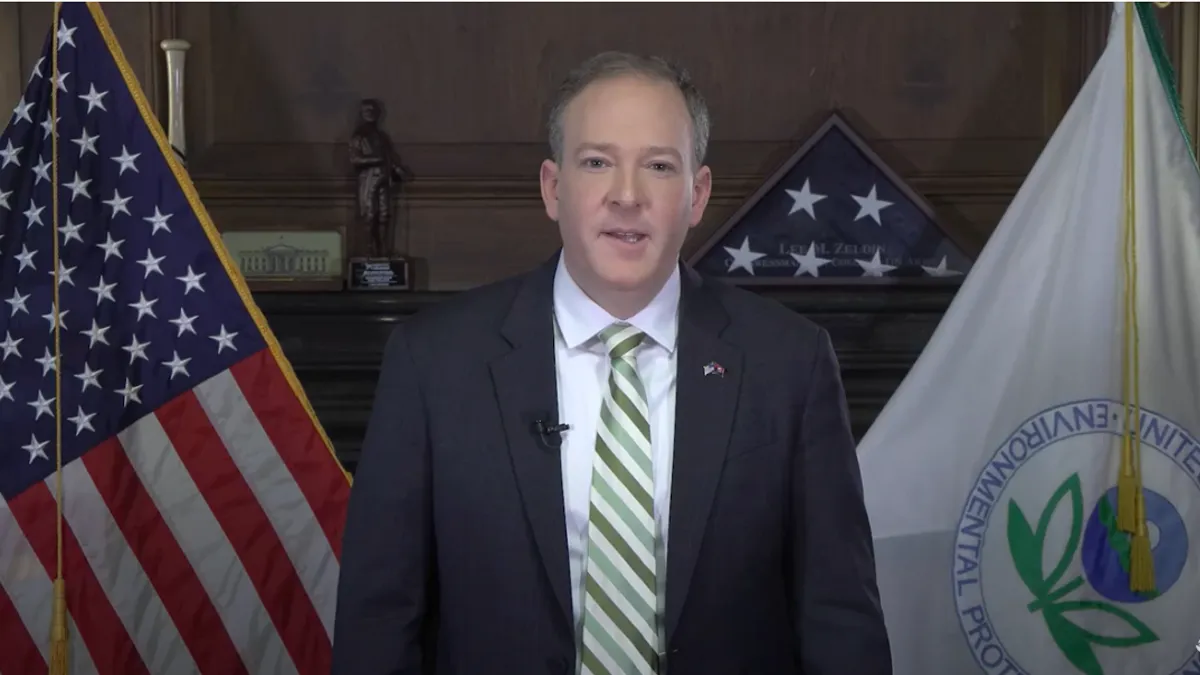Following a year of increased crime and calls to defund the police, voters in U.S. cities weighed in on public safety and policing via ballots this week.
Those issues were a factor in city election results from Boston to Seattle. Smart Cities Dive compiled the outcomes of six mayoral races where crime and policing were key issues, according to Ballotpedia, in addition to the results of five local police-related ballot measures across the country:
The results of six mayoral elections
Boston made history by electing the city’s first woman and first Asian American mayor, Michelle Wu. The progressive candidate campaigned on calls for police reform that include "rebuilding the culture and structure of the Boston Police Department"; "dismantling racism in policing," in part with an independent civilian review board; and diverting 911 calls related to mental health and homelessness to public health professionals.
Felicia Moore and Andre Dickens have advanced to a runoff election in Atlanta. Crime is a key issue for the candidates, as murder has risen significantly in the city. Both candidates said they would increase the presence of police officers but also increase training for de-escalation techniques and racial sensitivity, according to Ballotpedia.
Former police captain Eric Adams won New York’s mayoral election, becoming the second Black mayor in the city’s history. Adams has called for an increased police presence alongside efforts to increase police and community trust. "The debate around policing has been reduced to a false choice: You are either with police, or you are against them. That is simply wrong because we are all for safety. We need the NYPD — we just need them to be better," Adams’ campaign website states.
Minneapolis incumbent Mayor Jacob Frey won reelection, following a year of criticism from some progressive residents and leaders for his refusal to support defunding the city police department last year.
Frey opposed a local ballot measure in the 2021 election that proposed replacing the city police department with a new public safety department in the city’s charter. He has also called for an increased police presence following a local spike in crime, MPRnews.org reports.
"We’re sending a message that real and serious government and true change in our society is not about a hashtag or a slogan," Frey said in a speech on election night. "But [it] is about doing the hard work each and every day, recognizing that the precision of our solutions must match the precision of the harm that was originally inflicted."
Pittsburgh residents elected Democrat Edward Gainey, making him the city’s first Black mayor. Gainey’s campaign called for a number of police reforms, including "demilitarizing police equipment and training," redirecting police bureau resources, establishing alternative emergency responses for mental health calls, and reinforcing the citizen police review board.
Meanwhile, "pro-police" candidate Bruce Harrell won the mayoral seat in Seattle. Harrell has emphasized the need for police reform and addressing systemic racism while also calling for initiatives that increase the recruitment and retention of police officers.
Voters largely approve police reform-related ballot measures
Voters also weighed in on several local police-related ballot measures this week, according to Ballotpedia. While the high-profile effort to replace the Minneapolis Police Department with a Public Safety Department failed, other measures aimed at increasing police accountability largely passed, with results including the following:
PASSED: Albany, New York, Proposal 7
Voters approved a measure to increase the Community Police Review Board’s authority to investigate and oversee complaints about the police.
REJECTED: Austin, Texas, Proposition A
The measure would have required a minimum number of police officers and established various training and demographically representative hiring practice parameters.
PASSED: Denver, Referred Question 2G
Voters approved a measure to transfer power from the mayor to the Citizen Oversight Board to appoint the independent monitor to the Office of the Independent Monitor, which is in charge of disciplinary investigations into the police and sheriff's departments.
PASSED: Cleveland, Issue 24
The measure will change the structure of oversight for the local police department, including requirements that the Community Police Commission demographically represent the city.




















